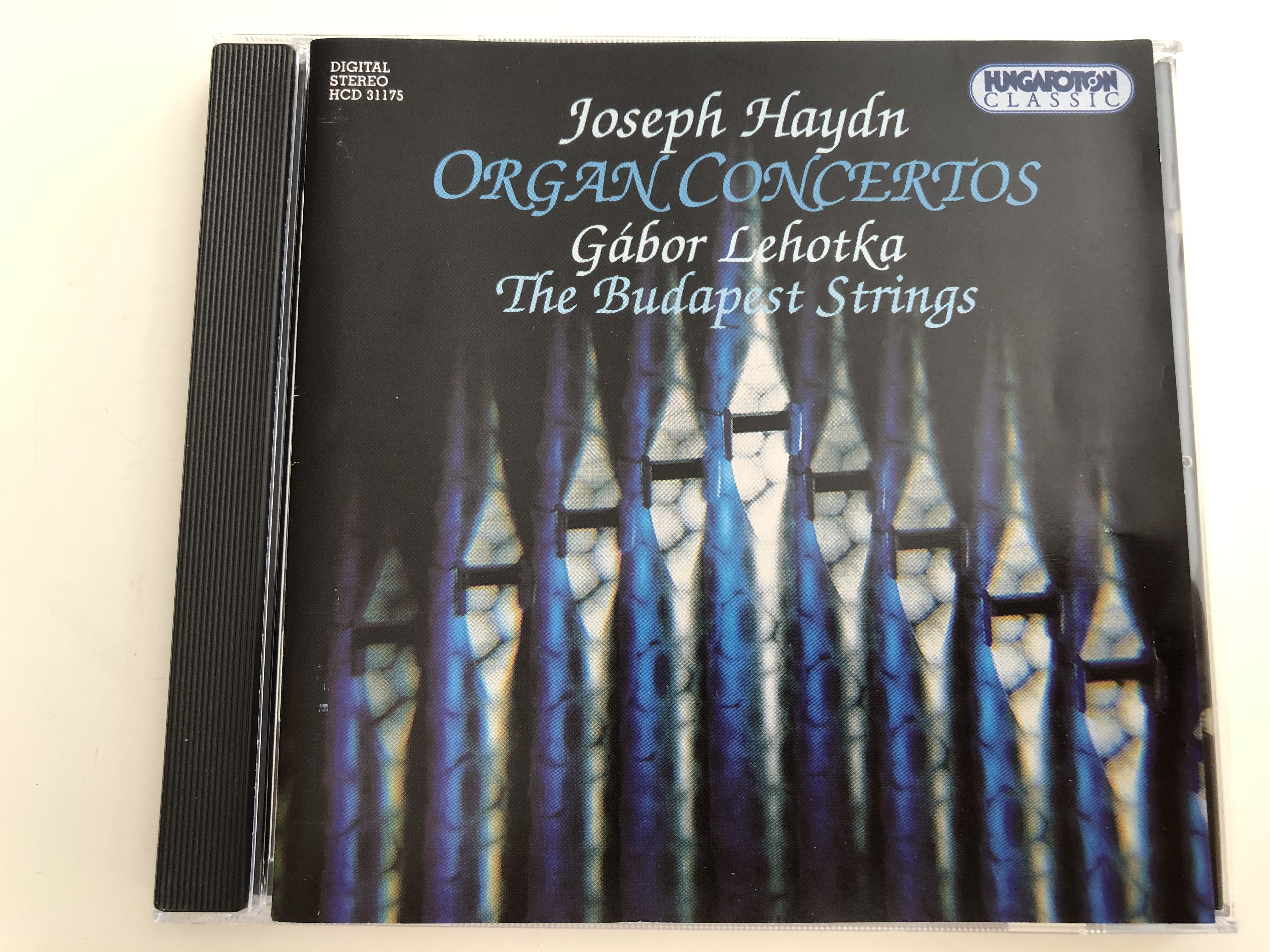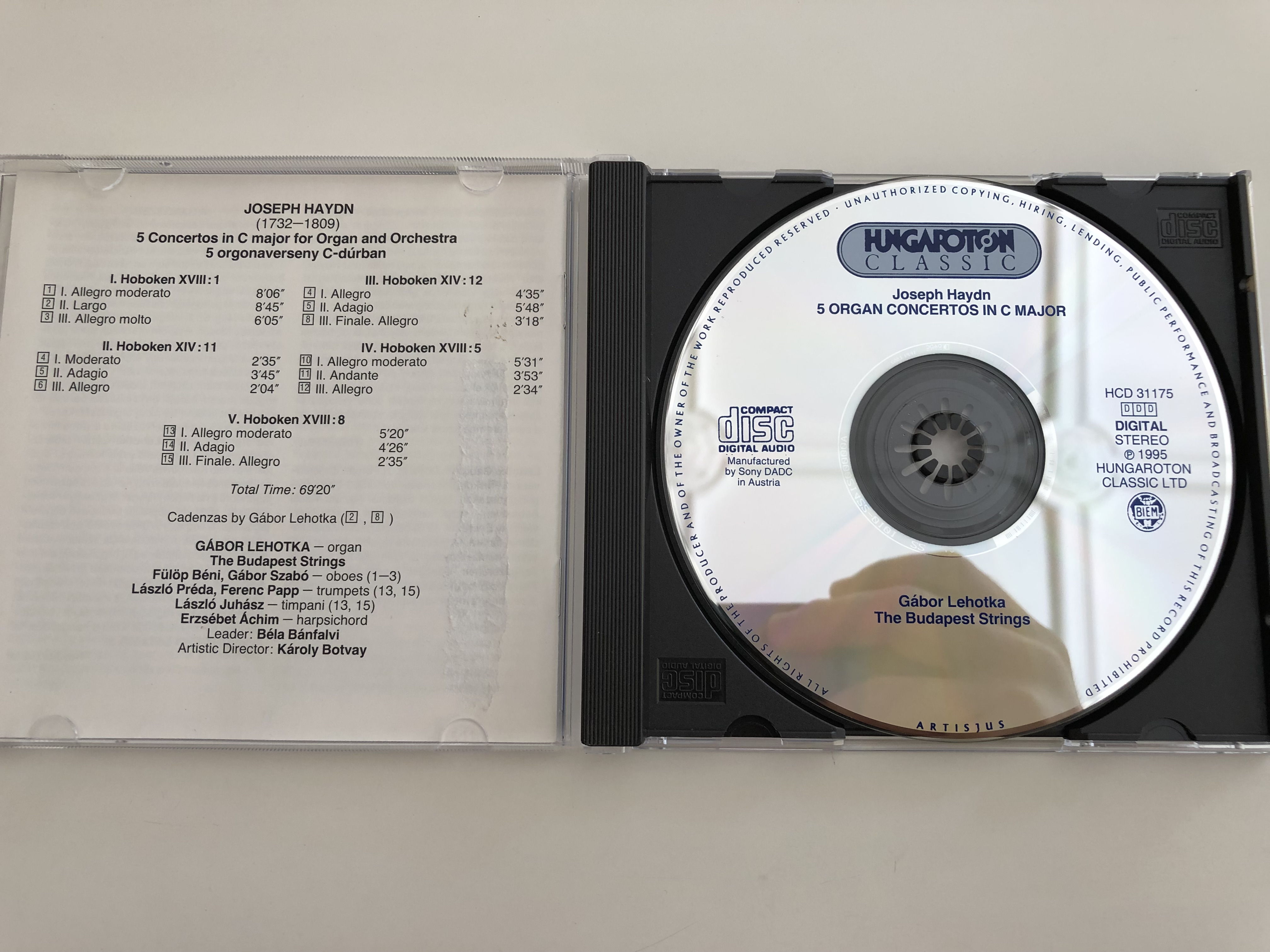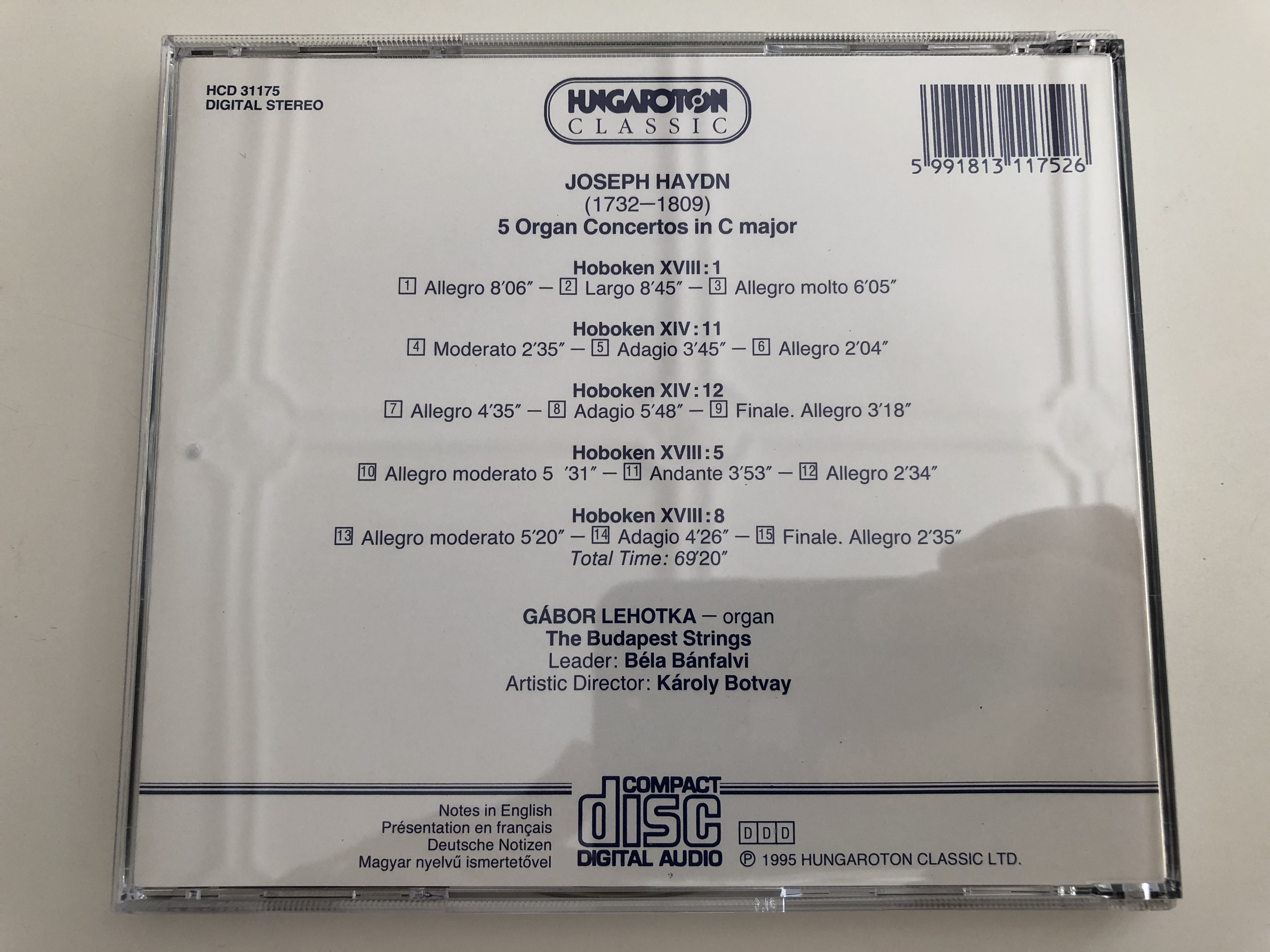Description
Joseph Haydn - Organ Concertos / Gábor Lehotka - The Budapest Strings / Hungaroton Classic Audio CD 1995
Haydn, Joseph: 5 Orgonaverseny C-dúrban
HCD31175
UPC 5991813117526
MADE IN HUNGARY
TOTAL TIME: 69:20
Tracklist
| Organ Concerto In C Major Hoboken XVIII:1 | ||
| 1 | 1. Allegro | 8:10 |
| 2 | 2. Largo | 8:47 |
| 3 | 3. Allegro Molto | 6:09 |
| Organ Concerto In C Major Hoboken XIV:11 | ||
| 4 | 1. Moderato | 2:38 |
| 5 | 2. Adagio | 3:47 |
| 6 | 3. Allegro | 2:14 |
| Organ Concerto In C Major Hoboken XIV:12 | ||
| 7 | 1. Allegro | 4:38 |
| 8 | 2. Adagio | 5:50 |
| 9 | 3. Finale. Allegro | 3:22 |
| Organ Concerto In C Major Hoboken XVIII:5 | ||
| 10 | 1. Allegro Moderato | 5:35 |
| 11 | 2. Andante | 3:58 |
| 12 | 3. Allegro | 2:41 |
| Organ Concerto In C Major Hoboken XVIII:8 | ||
| 13 | 1. Allegro Moderato | 5:22 |
| 14 | 2. Adagio | 4:28 |
| 15 | 3. Finale. Allegro | 2:37 |
- Composed By – Joseph Haydn
- Leader – Béla Bánfalvi
- Orchestra – Budapest Strings
- Organ – Gábor Lehotka
An organ concerto is a piece of music, an instrumental concerto for a pipe organ soloist with an orchestra. The form first evolves in the 18th century, when composers including Antonio Vivaldi, Johann Sebastian Bach and George Frideric Handel wrote organ concertos with small orchestras, and with solo parts which rarely call for the organ pedal board. During the Classical period the organ concerto became popular in many places, especially in Bavaria, Austria and Bohemia (whether called there a concerto, pastorella, or sonata), reaching a position of being almost an integral part of the church music tradition of jubilus character. From the Romantic era fewer works are known. Finally, there are some 20th- and 21st-century examples, of which the concerto by Francis Poulenc has entered the basic repertoire, and is quite frequently played.



































